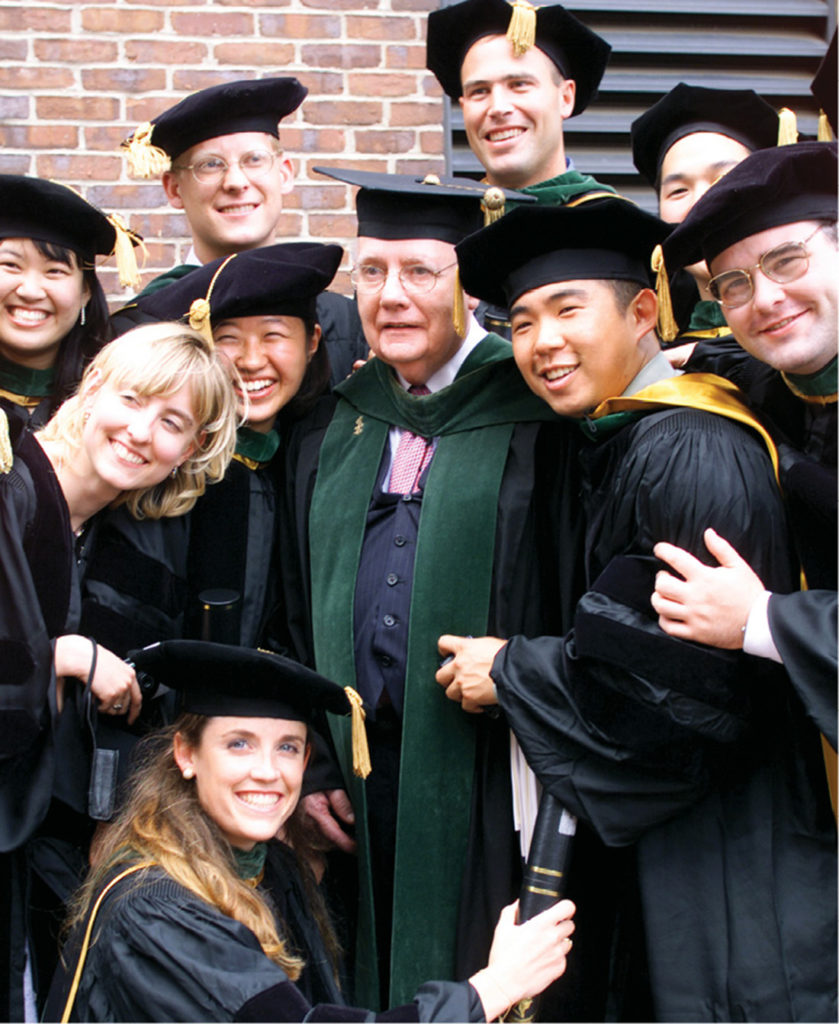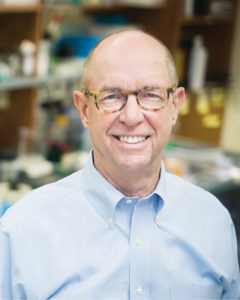
Vanderbilt University School of Medicine (VUSM) has launched two new donor societies: the John E. Chapman, M.D. Society, which supports clinical degree programs and endowed faculty chairs, and the Discovery Circle, which supports the basic sciences.
Dr. John E. Chapman led VUSM as dean for a quarter of a century—from 1975 to 2001—the longest tenure of any dean. During that time he conferred degrees on more than 3,000 Vanderbilt medical students and grew the faculty by 789 members. As a visionary for medical education, Chapman is remembered both for his contributions at Vanderbilt and for his far-reaching national influence.
“Chapman Society members not only will play a critical role in the future of VUSM, but also will honor its history and Dean Chapman’s vision for what Vanderbilt could—and would—become: an innovator in medical education,” says Dr. Jeffrey Balser, MD’90, PhD’90, president and CEO of Vanderbilt University Medical Center and dean of VUSM.

Discovery Circle support helps to ensure that faculty and students have the resources necessary to initiate high-risk, groundbreaking research that has the potential to open new fields of scientific inquiry. A donor society dedicated to supporting basic research is crucial in the face of dwindling federal funding and the resulting competition for National Institutes of Health support, says Lawrence Marnett, dean of basic sciences for VUSM, University Professor of Biochemistry and Chemistry, and Mary Geddes Stahlman Professor of Cancer Research. In this role Marnett leads the school’s basic science departments, which are cell and developmental biology, cancer biology, molecular physiology and biophysics, pharmacology, and biochemistry, as well as its associated basic science centers, institutes and programs.
—DEBBIE SETTLES